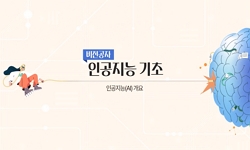본 연구는 인공지능(AI) 기술이 박물관 및 미술관에 어떻게 적용되고 있으며, 이러한 기술 활용 현황 및 적용 방식, 한계점, 그리고 지속 가능한 발전 방향을 다각도로 분석하는 것을 목적으...
http://chineseinput.net/에서 pinyin(병음)방식으로 중국어를 변환할 수 있습니다.
변환된 중국어를 복사하여 사용하시면 됩니다.
- 中文 을 입력하시려면 zhongwen을 입력하시고 space를누르시면됩니다.
- 北京 을 입력하시려면 beijing을 입력하시고 space를 누르시면 됩니다.

AI 기술의 박물관ㆍ미술관 적용: 활용 현황과 한계점, 그리고 지속 가능한 발전 방향 = Application of AI Technology in Museums: Current Practices, Challenges, and Sustainable Development Directions
한글로보기부가정보
국문 초록 (Abstract)
본 연구는 인공지능(AI) 기술이 박물관 및 미술관에 어떻게 적용되고 있으며, 이러한 기술 활용 현황 및 적용 방식, 한계점, 그리고 지속 가능한 발전 방향을 다각도로 분석하는 것을 목적으로 한다. 특히 AI가 전시 기획, 교육 프로그램, 연구 및 보존 활동 등 박물관 운영 전반에 걸쳐 어떤 방식으로 통합되고 있는지를 살펴보고, 이러한 적용이 박물관과 관람객 경험에 어떠한 변화를 가져오고 있는지를 탐색하였다. 본 연구는 문헌 조사와 국내외 대표 사례 분석, 그리고 2015년부터 2025년까지 발표된 AI 관련 논문을 대상으로 한 텍스트 마이닝 분석(TF-IDF 및 LDA 토픽 모델링)을 혼합한 연구 방법을 통해 이루어졌다. 연구 결과, 박물관의 전시, 교육, 보존 기능에 걸쳐 AI는 각각 운영 모델의 재구성, 교육적 기능의 확장, 보존 방법론의 고도화 등 구체적 적용 방식을 통해 박물관의 전통적 역할을 재편하고 있는 것으로 나타났다. 그러나 기술의 급속한 도입은 큐레이터의 역할 변화, 알고리즘 편향 문제, 데이터 접근성 불균형 등 여러 도전과제도 동반하고 있음을 확인하였다. 이에 본 연구는 박물관ㆍ미술관에서 AI 기술이 장기적으로 지속 가능하고 윤리적인 방향으로 활용되기 위한 전략으로 인간-AI 협업 기반의 전시ㆍ교육 설계, 비판적 디지털 리터러시의 교육 강화, 문화다양성과 포용성을 고려한 기술 운영 원칙의 수립을 제안한다.
다국어 초록 (Multilingual Abstract)
논문접수 2025. 03. 31 심사수정 2025. 05. 05 게재확정 2025. 05. 05
This study aims to analyze how artificial intelligence (AI) technologies are being applied in museums and art galleries, examining the current status of AI utilization, application methods, limitations, and strategies for sustainable development from ...
This study aims to analyze how artificial intelligence (AI) technologies are being applied in museums and art galleries, examining the current status of AI utilization, application methods, limitations, and strategies for sustainable development from multiple perspectives. In particular, it investigates how AI is being integrated across various aspects of museum operations—including exhibition planning, educational programming, research, and conservation—and explores how these applications are reshaping museum practices and visitor experiences. The study employed a mixed-methods approach combining literature review, analysis of representative domestic and international case studies, and text mining (TF-IDF and LDA topic modeling) of AI-related academic papers published between 2015 and 2025. The findings reveal that AI technologies are being incorporated into museum functions—exhibitions, education, and conservation—through specific application strategies: restructuring operational models, expanding educational functions, and advancing conservation methodologies. However, the rapid adoption of AI also brings significant challenges, such as shifts in curatorial roles, issues of algorithmic bias, and disparities in data accessibility. Based on these insights, this study proposes strategies for the sustainable and ethical integration of AI in museums and galleries, including the design of collaborative human-AI exhibition and education systems, the strengthening of critical digital literacy education, and the establishment of operational principles that prioritize cultural diversity and inclusivity.
논문접수 2025. 03. 31 심사수정 2025. 05. 05 게재확정 2025. 05. 05
동일학술지(권/호) 다른 논문
-
이미지 생성형 AI 활용 초등학생 대상 미술 수업의 실제
- 한국국제미술교육학회
- 강주희
- 2025
- KCI등재
-
미술 감상 게이미피케이션 앱 제안: 사용자 행동 발달 및 미적 경험 구조 이론에 따른 UX 디자인
- 한국국제미술교육학회
- 정시은
- 2025
- KCI등재
-
문화적 혼종성으로서 K-POP과 시각문화 미술교육: BTS 시각문화를 통한 ANT 기반 감상 학습의 탐색
- 한국국제미술교육학회
- 조인성
- 2025
- KCI등재
-
- 한국국제미술교육학회
- 장래은
- 2025
- KCI등재




 DBpia
DBpia






